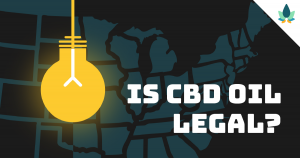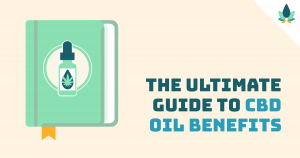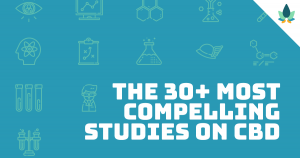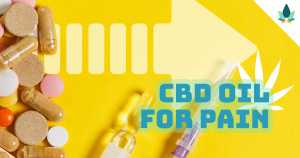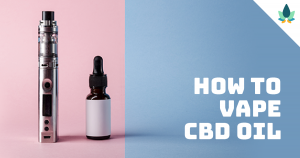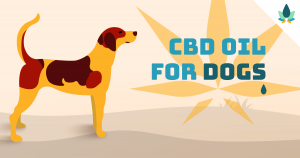CBD hemp oil is growing in popularity with good reason: it’s changing lives.
Whether you’ve heard something on the news, seen mention of it on television, or are simply searching for a natural alternative to treat an ongoing health condition or frustration, CBD oil has likely come to your attention.
However, finding clear, reliable information on what is CBD, what it does, and whether it’s legal in the first place, has probably presented a challenge.
We’re here to change that. Read on for information on what CBD is, how it can be used, and whether it might be right for your specific needs.
Cannabinoids? Cannabidiol? Learning the Language of CBD
CBD – or cannabidiol – is a type of cannabinoid, a chemical that’s naturally found in cannabis plants, which is where concern generally starts to arise. Before going any further, it’s important to note that while CBD comes from cannabis, it doesn’t create a high, because on its own it cannot; that’s caused by another cannabinoid, THC, which we’ll get to later.
Instead, full-spectrum CBD hemp oil is derived from cannabis plants that produce over 400 different compounds. Some are unique to the plant while others are common in other species of plants as well. Sixty of them, however, are unique to cannabis plants. These sixty compounds are classified as cannabinoids; cannabidiol is one of them. It happens to be the second-most prevalent cannabinoid occurring in cannabis and is completely separate from THC.
Let’s Break It Down

The exciting part? CBD – one of the 400 naturally occurring compounds in cannabis plants – can be isolated and used for specific medicinal purposes without the common psychoactive effects commonly associated with recreational marijuana use.
CANNABIS
Cannabis is a type of plant with different varieties, including marijuana plants and hemp plants. Until recently, it has been strongly associated with recreational marijuana use. These plants produce over 400 compounds, over sixty of which are unique to the plant and can be isolated for medicinal and other purposes.
CANNABINOIDS
Cannabinoids are the active chemical compounds that are unique to cannabis plants. They are the active ingredients in various cannabis products that lead to benefits and other effects.
CANNABIDIOL
Cannabidiol – or CBD – is a cannabinoid found in the seeds, stalks, and flowers of the cannabis plant. It occurs naturally and can be extracted, independent of other cannabinoids, in oil form.
THC
Tetrahydrocannabinol – or THC – is the most commonly found cannabinoid in the cannabis plant. Known for its psychoactive effects, it is the compound responsible for the “high” produced by recreational and medical cannabis or marijuana. (1)
While We’re On The Topic of THC…
Because of the psychoactive properties of THC and the fact that THC and CBD are both derived from cannabis plants, understanding the difference between the two is critically important.
THC vs. CBD: The Breakdown
As referenced above, THC and CBD are both cannabinoids, compounds occurring naturally in the cannabis plant. Additionally, each have unique and similar medicinal effects that are commonly sought after for a variety of healing purposes.
This is where it gets important: Due to the effects of THC’s psychoactive qualities, it’s known to provide a high that can be either euphoric or accompanied by paranoia and other negative effects, depending upon the strain and user. While THC is frequently used for those suffering from chronic pain, mood disorders, and other medical ailments, its effects can be difficult to predict, and — sometimes –unpleasant.

CBD, ON THE OTHER HAND, LACKS PSYCHOACTIVE QUALITIES. IT CANNOT GET YOU HIGH.
It can and does, however, interact with the human body’s various symptoms to provide many of the same benefits (see below) as its counterpart, THC, without any negative or mind-altering effects. Even better… in some ways, it can help mitigate the effects of THC when used in combination, thanks to what’s commonly called the “Entourage Effect.”
CBD, in short, is:
- Naturally occurring
- Potent, without psychoactive qualities
- Beneficial for a variety of medicinal effects
The fact that CBD provides the benefits without the negative side effects makes it a legal, more desirable option than traditional or medical marijuana, providing it contains less than 0.3% THC. Still curious about the differences? Take a few minutes to dive deeper on CBD vs. THC.
Following Along So Far? Great. Now, Where Does CBD Come From?
There are actually multiple plants that fall into the cannabis family, or that can be classified as “cannabis sativa” which means there are different sources and strains of CBD. The top two are hemp and marijuana. CBD can be harvested from either plant with similar health benefits. Where the oil comes from does, however, determine whether it will be legal in a given state.
CBD can come from marijuana flowers or from hemp leaves, depending on the source. Many argue that CBD derived from the marijuana plant is more potent, perhaps because of the way THC and CBD can interact, however, CBD derived from hemp leaves demonstrates proven medical benefits as well.
| Hemp | Marijuana | |
|---|---|---|
| Is it Cannabis? | Yes | Yes |
| Chemical Makeup | Low THC (<0.3%) | High THC (5%-35%) |
| Phychoactive? | No | Yes |
| Cultivation | Requires minimal care. Adaptable to grow in most climate | Grown in carefully controlled atmosphere |
| Applications | Automobiles, body care, clothing, construction, food, plastic, etc | Medical and recreational use |
What Are The Effects of CBD?
Before we jump into what CBD can do and how CBD works, it’s important to reiterate what it can’t do. Remember, THC is the cannabinoid responsible for the psychoactive effects of recreational and medical marijuana. Because standard marijuana in these categories contains up 25-30% THC, mood alteration is a natural result.
For some users, this is a desired effect. For others:
- It’s concerning and may violate their belief systems.
- It leads to less-than-desirable emotions including paranoia and depression.
- It can cause a decrease in short-term memory and the ability to sense time. (2)
- It can heighten anxiety, sometimes causing panic attacks.
In these cases, the side effects of high-THC levels may outweigh the proven benefits of the plant.
So, what does CBD do?
Because CBD contains less than .3% THC, psychoactive effects and the “high” feeling provided by traditional marijuana are eliminated while the benefits remain.
CBD interacts with and helps regulate the human body’s endocannabinoid system’s cannabinoid receptors, something you probably never learned about in school. This system regulates balance in the body, which means it affects a variety of functions like blood pressure, sleep, immune responses, mood, and more. When the endocannabinoid system is in balance, you’re likely to function — and feel — your best!
Put simply: CBD helps regulate important bodily functions, leading to optimal health and proven benefits.
What, Exactly, Are The Health Benefits of CBD? What Is CBD Oil Used For?
We’ve cleared up the difference between THC and CBD, so, what are the actual benefits of CBD? The wide range of health benefits and medical condition relief might surprise you. Check out a brief overview below.
Seizure relief.
CBD oil is gaining popularity in treating epilepsy due to its potential to reduce the frequency and severity of seizures without the negative side effects of more commonly prescribed treatments. A new, FDA approved drug, Epidiolex hit the market in 2018.Anxiety Relief.
CBD can interact with the endocannabinoid system to reduce anxiety, even for long-time sufferers. CBD oil for anxiety can lead to a better overall quality of life and improved daily functions.CBD Oil for Pain relief.
11.2% of Americans suffer from chronic pain. Of those, 17% suffer from severe pain levels on a daily basis. Because pain can often be traced back to inflammation, CBD’s anti-inflammatory effects may be a natural treatment option, free of the side effects of over-the-counter painkillers. (3)Neurological condition treatment and relief.
Neurological conditions like Alzheimer’s are often linked with devastating side effects including a reduced sense of recognition and overall cognitive functioning. Recent studies have indicated that CBD products may be able to lessen these effects while strengthening the nervous system. (4)Tumor-shrinking capabilities.
Recently, studies have indicated that CBD oil may be effective for shrinking tumors in the body and stopping the spread of malignant cells. (5)Nausea relief.
CBD has been recognized for some time for its ability to reduce nausea and increase appetite in those suffering due to medical disorders or reactions to common disease treatment protocols.Counter drug-withdrawal and smoking effects.
Smoking cessation and opioid withdrawal symptoms are serious hindrances to moving forward. Recent studies have suggested CBD oil may help relieve withdrawal symptoms, leading to more successful treatment and cessation.Pancreatic benefits for Type 1 Diabetics.
At its core, Type 1 Diabetes is an immune disorder that occurs when an individual’s immune system attacks the pancreas. CBD oil may help with management of Type 1 Diabetes, reducing the resulting inflammation of the pancreas, allowing for better management of the disease.Acne treatment.
Acne, like many other conditions, begins with inflammation and the overproduction of specific chemicals in the body. CBD oil can treat acne by helping to balance your system, allowing it to operate at an optimal level.These are just a few of the research-backed benefits of CBD oil. To help you learn more about the many benefits of CBD, we put together the Ultimate Guide to CBD Oil Benefits.
Do I Have To Smoke It? The Breakdown
When it comes to hemp, the traditional image of a smoke filled room might come to mind. Now’s a great time to move past that. Today, there are more options than ever before for enjoying the benefits of CBD oil without the stereotypical use cases that might come to mind. Depending on the benefits you’re hoping to obtain from CBD oil, and your general preferences, there are various forms that may appeal to your needs.
Forms of CBD include:
The oil itself. CBD as an oil is the most popular form of CBD currently available. It can be taken orally or used topically, depending on your needs.
Vaping. Hemp oil e-liquid inhaled through a vaporizer like other e-liquids allows for rapid absorption of CBD into the body. Check out our complete guide on How to Vape CBD Oil.
Edibles. The potential for pre-packaged edibles -- from baked goods to gummies -- is beginning to increase. Each of these includes CBD oil or powder, allowing for the same benefits as other forms.
Tinctures. CBD tincture drops commonly dispensed from a glass dropper, are generally placed under the tongue. These tinctures can be combined with other extracts to mask the taste of the CBD and to provide various health benefits.
Topicals. CBD oil topicals exist for the treatment of skin condition, the reduction of the signs of aging skin and even muscle pain relief.
Capsules. Capsules make the consumption of CBD simple and can be combined with other beneficial supplements to provide maximum health benefits without a lifestyle change or noticeable taste.
As CBD becomes more popular, new methods of delivery across countless previously unthought of mediums will continue to emerge.
Now that we’ve cleared that up, let’s move onto the next question you’re probably wondering about…
Is CBD Oil Legal?
The answer is not so simple. In fact, it’s pretty complicated. CBD oil is can currently be purchased in all 50 states, but there is confusion associated with the process, as well as a few (or a lot, depending on how you see it) restrictions. This confusion has been increased with the passage of 2018’s Farm Bill, which made hemp CBD legal on a federal government level.
Yet, state by state there are regulations. Here’s why:
To understand the confusion, let’s rewind almost fifty years… In the 70s, during the infamous “War on Drugs,” Congress signed the Controlled Substances Act of 1970 into law. This act created the Drug Enforcement Administration for enforcement and banned a select group of drugs, including marijuana. It also — perhaps unintentionally — created a stigma around all things related to the cannabis plant, which is where much of the fear relating to hemp stems from today. (6)
Because many states have begun legalizing medical marijuana, and some moving toward recreational marijuana, this is where the confusion starts to set in.
In states where marijuana is legal, varying laws exist that regulate the source of CBD oil. However, CBD oil sourced from industrial hemp plants and containing less than .3% THC can be purchased by residents of all 50 states according to federal law. It IS important to note, however, that some states — like Texas — ban any CBD that has even trace amounts of THC. Understanding state laws — especially when they conflict with federal laws, is critical.


The US is slowly joining other nations like Paraguay and Mexico, which have approved the use of pure CBD, in recognizing this substance as a dietary supplement, and regulating it accordingly.
Furthermore, the World Health Organization announced a recommendation in 2017 that CBD should not be labeled a scheduled substance. Also, the Food and Drug Administration have begun to approve medications containing CBD for prescription use, and additional clinical trials are ongoing. This topic is large and continuously evolving — let us answer all of your questions on the legality of CBD Oil in the United States.
Where Can I Find CBD Oil?
Are you ready to run out and buy CBD oil to experience the benefits for yourself? Great!
Now…slow down.
CBD is an amazing, natural way to treat a variety of conditions and to improve daily functioning. But, like other good things in life: quality is everything. Ensuring your oil comes from high-quality hemp plants and a reputable provider while meeting the regulations of federal law and your own state should be a top priority.
Furthermore, finding how to incorporate the use of CBD into your lifestyle for the highest level of benefit may take time. Various forms — edibles, topical lotions, tinctures, and vapes — each have their own benefits and drawbacks. Be willing to experiment to find out what form, and what amount of CBD derived from hemp products works best for your personal needs.
Furthermore, finding how to incorporate the use of CBD into your lifestyle for the highest level of benefit may take time. Various forms — edibles, topical lotions, tinctures, and vapes — each have their own benefits and drawbacks. Be willing to experiment to find out what form, and what amount of CBD derived from hemp products works best for your personal needs.
Research potential providers, read reviews and take the time to understand their testing and quality assurance processes before making a purchase. It’s your health we’re talking about!
CBD oil’s benefits could change your life.
We don’t say that lightly. Research, science, and experiences of those who have put CBD oil to the test can attest to the fact that the benefits of CBD oil are worth the hype.



